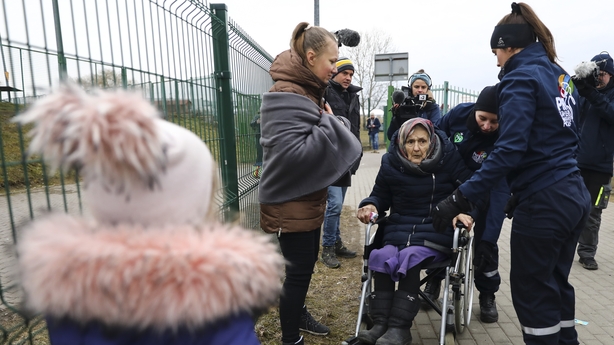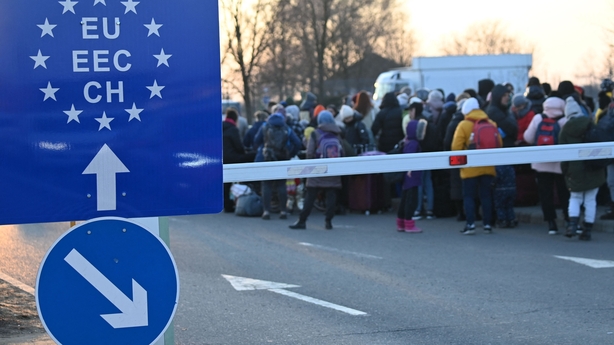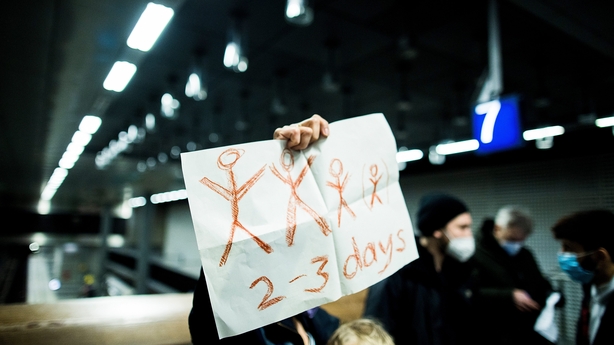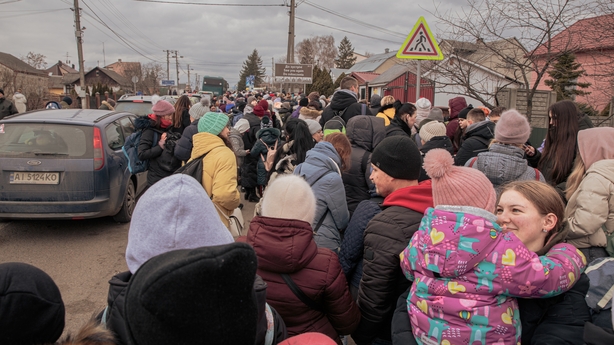The alarm bells are getting louder - an audible warning that the outflow of people fleeing Ukraine is going to surge this week.
Consider this statement from the UN's High Commissioner for Refugees, Filippo Grandi.
During a visit to the Polish / Ukrainian border-post of Medyka on Sunday, he warned that: "...hundreds of thousands [of people] are on the move" in Ukraine.
He added: "… it's very likely that we will see another large influx within the next few days."
The previous day there had been another warning - this time from the Polish government, which expressed concern that an "unimaginable" humanitarian crisis was developing.
The EU, and indeed the wider world, should take heed of concern in Warsaw.
This is the country which has borne the brunt of the mammoth logistical refugee crisis triggered by Russia’s invasion.
Out of the 1.5m people which the United Nations estimates have fled Ukraine into neighbouring countries up to Sunday - Poland has admitted one million.

In a remarkable social media post late last night, the office of the Polish Prime Minister tweeted to the arriving Ukrainian refugees: "Feel At Home."
The UN has made some grim projections on what a worst-case scenario might look like - more than 4m Ukrainians, that’s about one tenth of the population, fleeing their country.
Yesterday, the head of the UN’s refugee agency said the rate of population movement in Ukraine was comparable to what it had been during World War II.

In my view there are three things which need to be considered as short and medium-term plans are being made:
Many of the Ukrainians who have arrived in Poland to date have found shelter with fellow nationals. Many of these had fled Ukraine in 2014 when Russia invaded and annexed Crimea. However, the capacity of such people to absorb hundreds of thousands of additional refugees is undoubtedly limited.
This means that the Polish authorities - along with their counterparts in Romania, Slovakia, and Moldova - are going to be under pressure to get more arriving Ukrainians onto buses and trains and away from the border areas more quickly than before. If that does not happen, authorities will be forced to set-up refugee camps - something which they have so far managed to avoid.
The knock-on effect is that EU member states need to put in place measures which ensure that those increased numbers of refugees from Ukraine have somewhere to live and work. These people will need to be able to lead as full lives as possible in their new homes and communities, for however long they are there. NGO’s need to be fully-funded to help assist those in need.

The real and tangible concern is that if the commitment from the EU to put in place urgent and comprehensive assistance for refugees falters, then the nightmare predictions of the United Nations and other bodies are going to become a grim reality, and the system fails.
There are already visible cracks.
One example is the Medyka border crossing between Poland and Ukraine. Two Fianna Fáil politicians - Timmy Dooley and Billy Kelleher - visited the western Ukrainian city of Lviv yesterday. On their return across the border, they said the tailback on the Ukrainian side was around 20km long for cars and 5km for people on foot.
We’re talking about women and children, camped out in sub-zero temperatures, waiting to be admitted to Poland. Last week the UNHCR said it was trying to ascertain what was causing this hold-up. To date, we still don't have an adequate answer.

I asked the UNHCR's spokesperson Chris Melzer last Wednesday if his organisation could explain what was going on. His answer: "Not really."
It wouldn’t take much for a significant problem - like the one above, in Medyka - to become a full-blown crisis.
UNHCR chief Filippo Grandi said yesterday that there's a clear solution to this unfolding disaster: "What we need is a ceasefire, the end of hostilities. That's the only way to stop this tragedy."
He is right, but his appeal has so far fallen on deaf ears.
And the consequences of failure are nightmarish.







